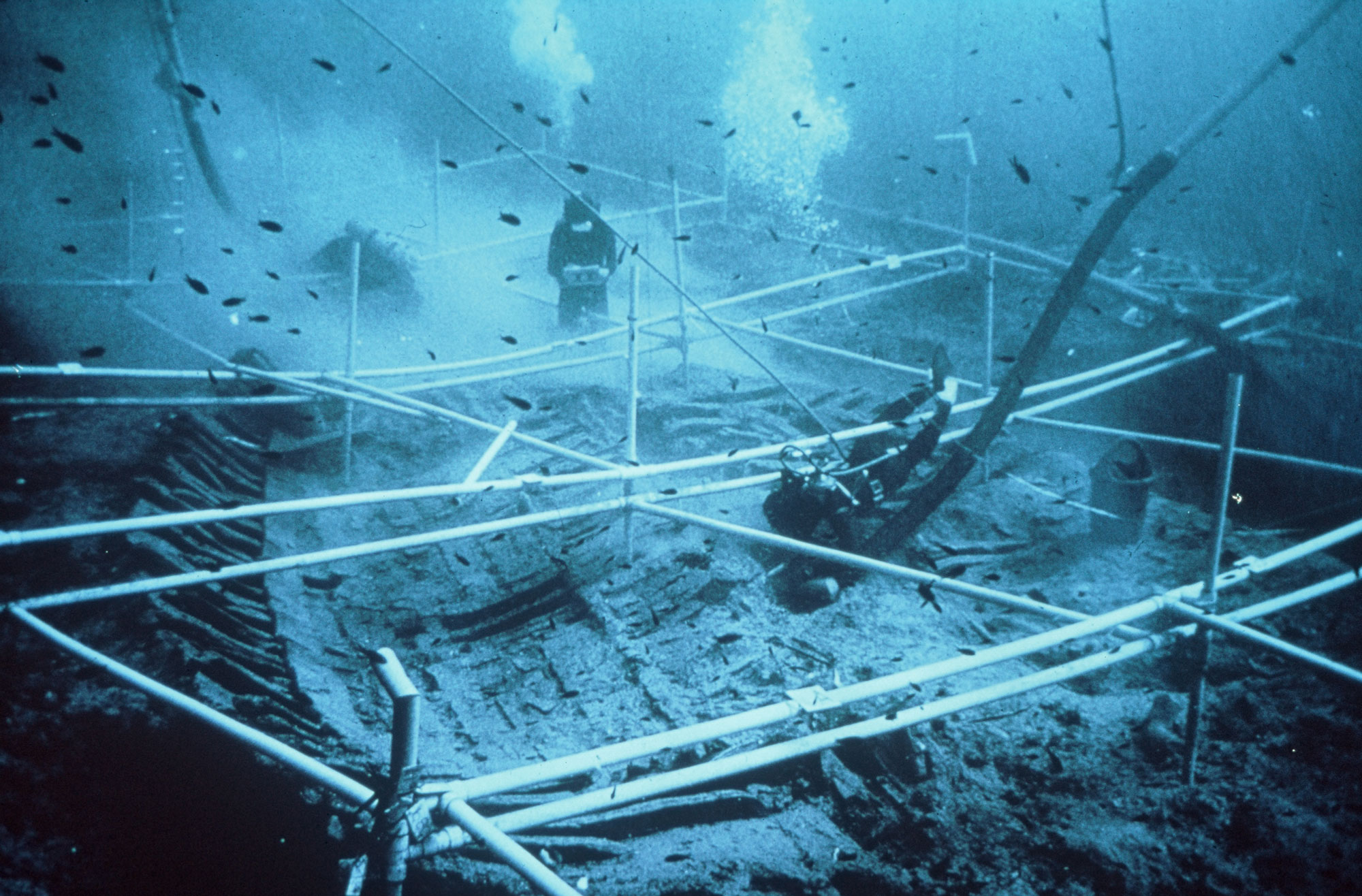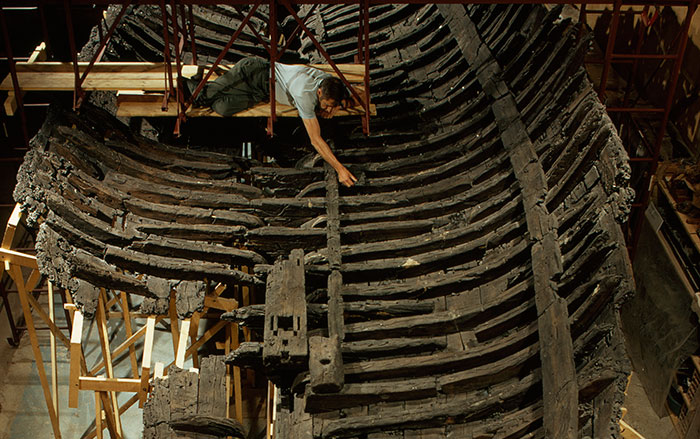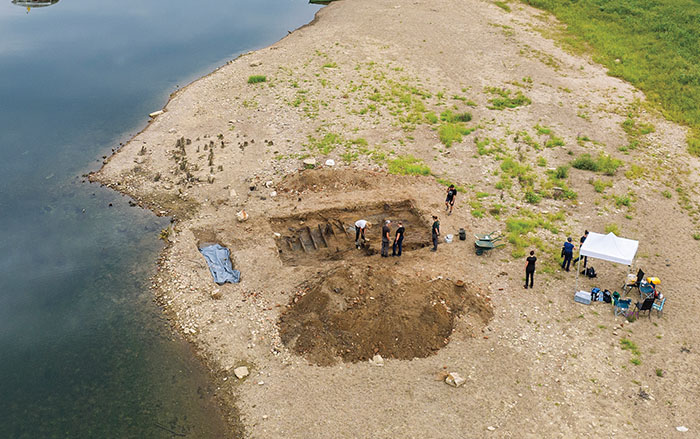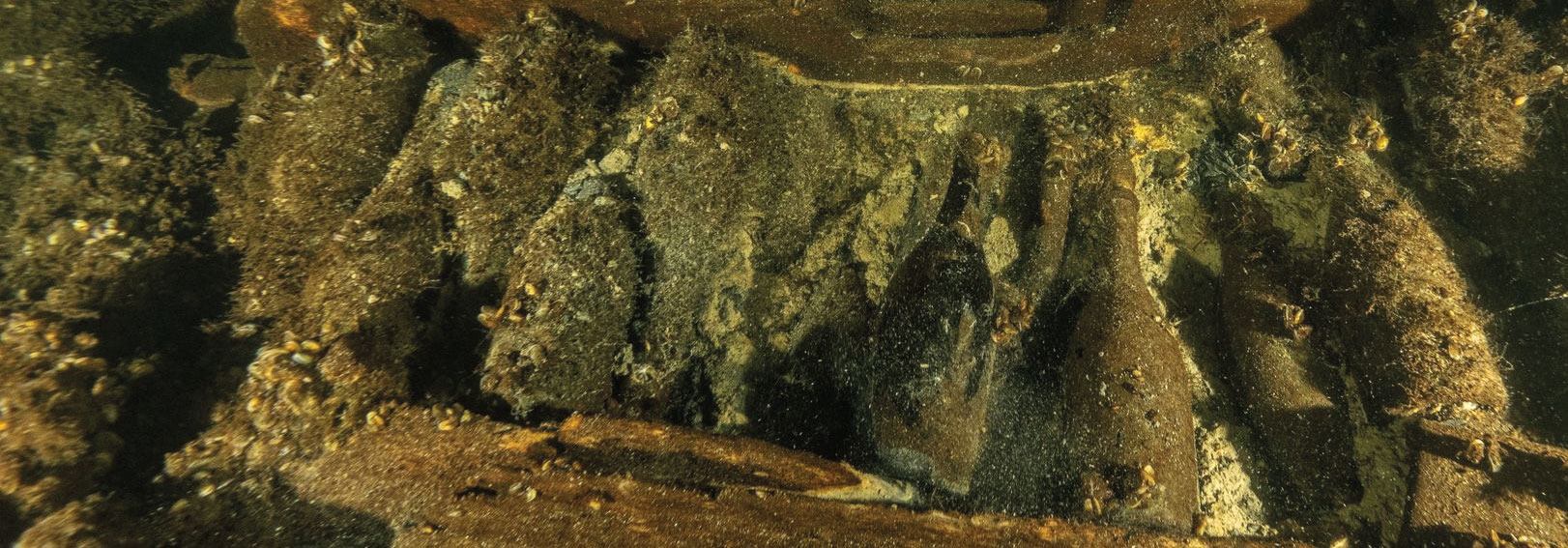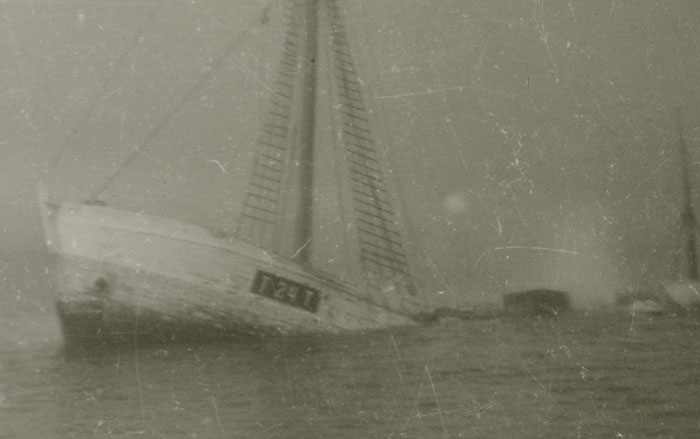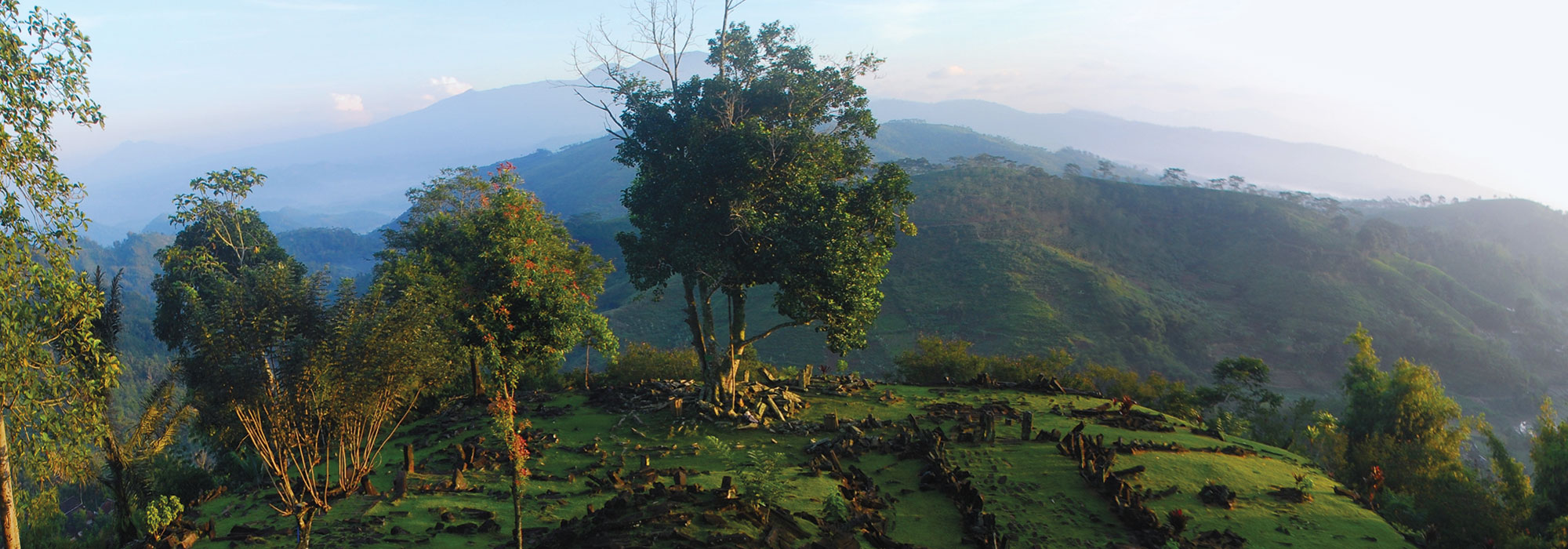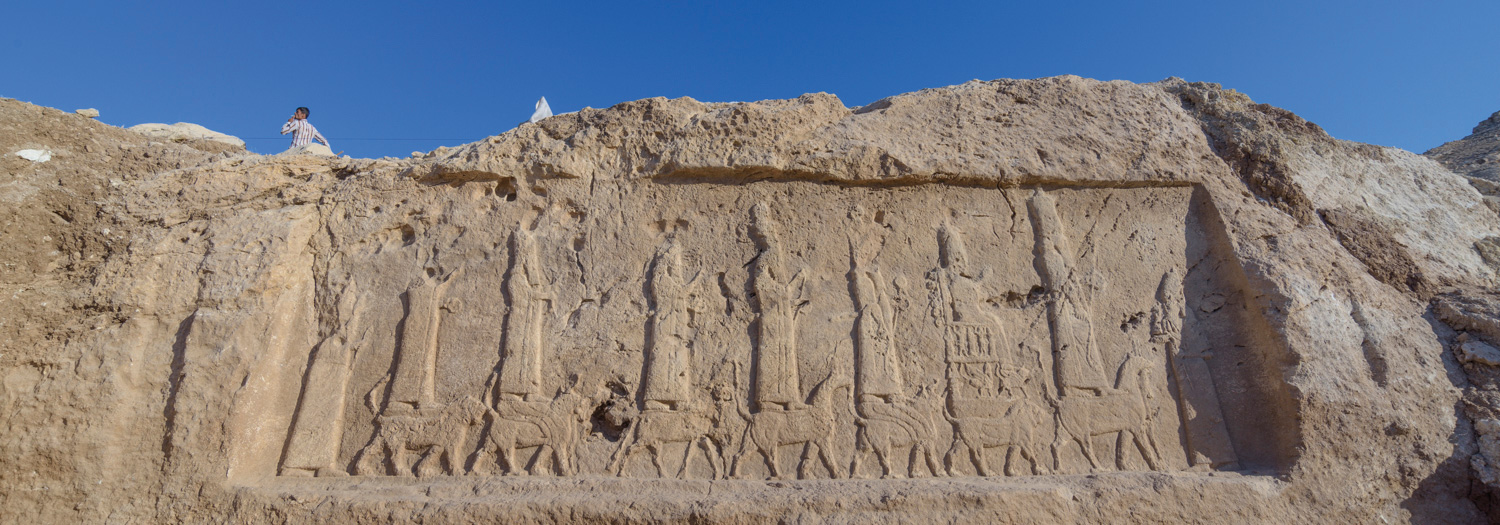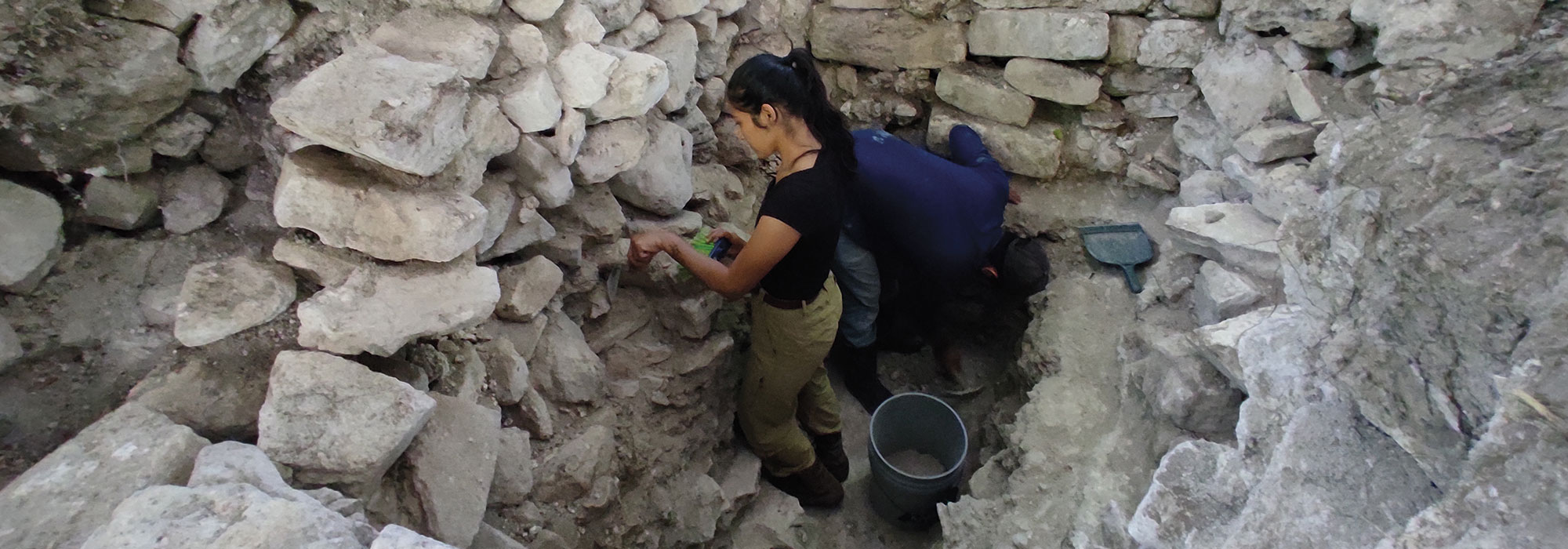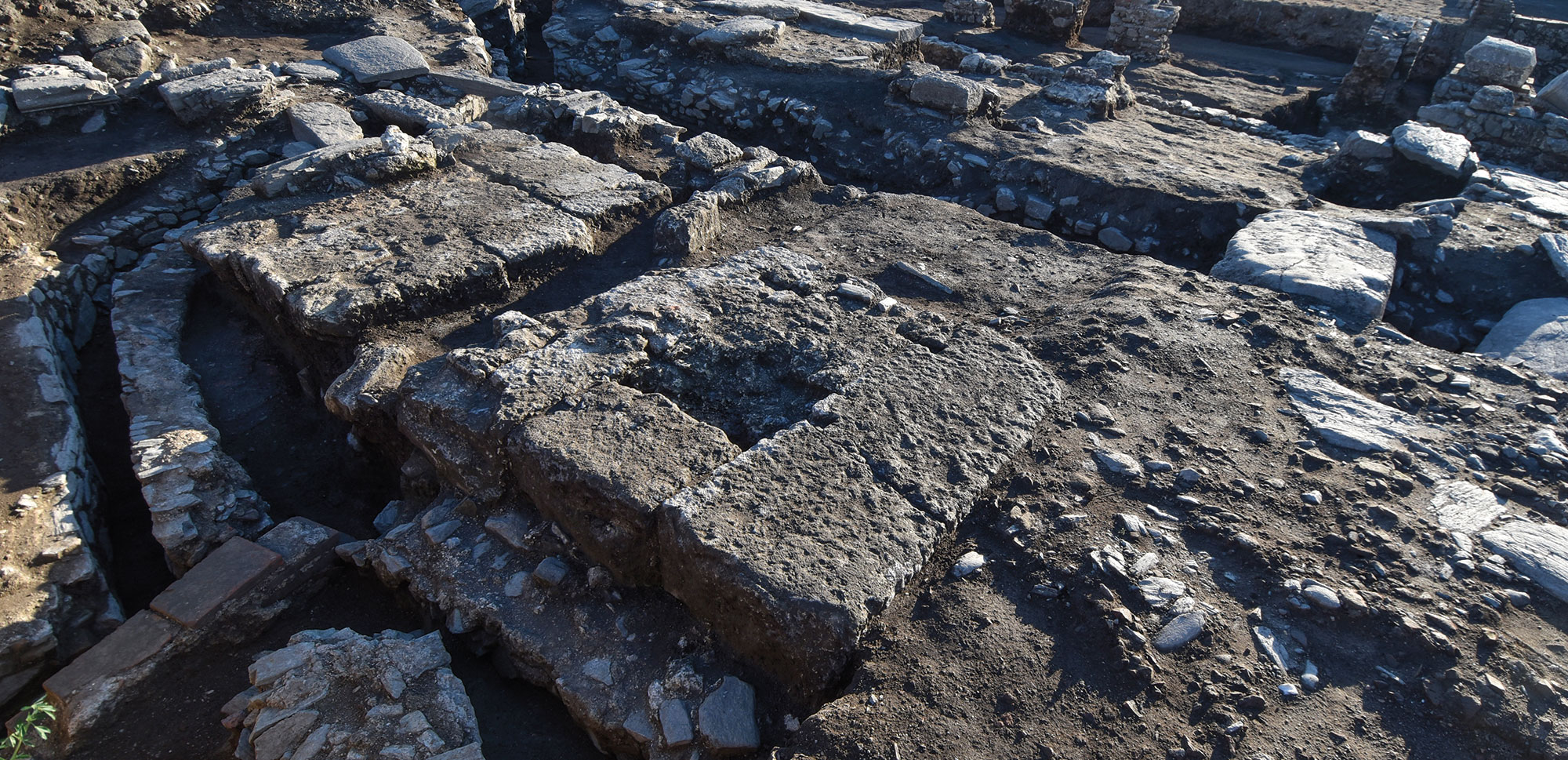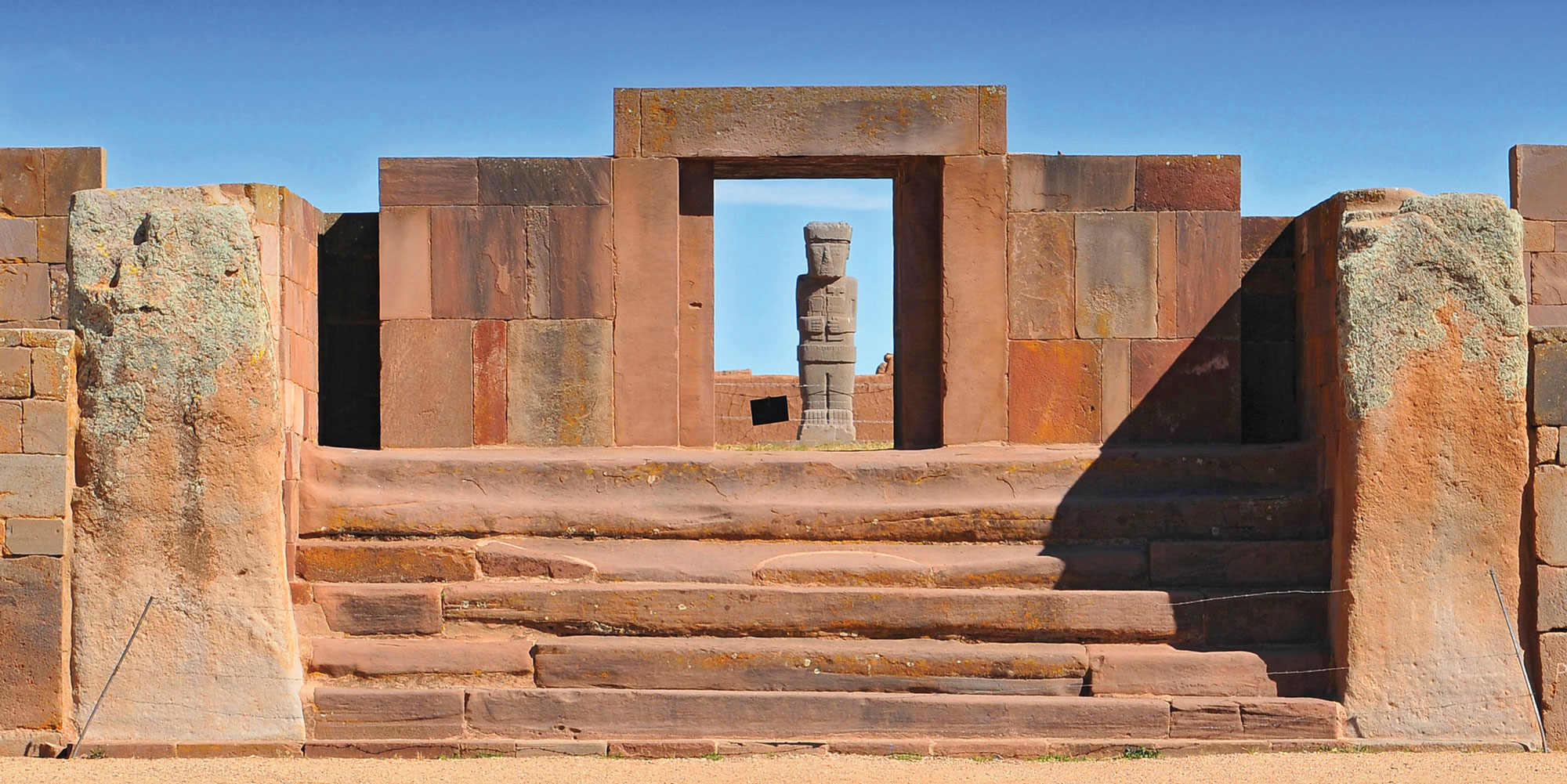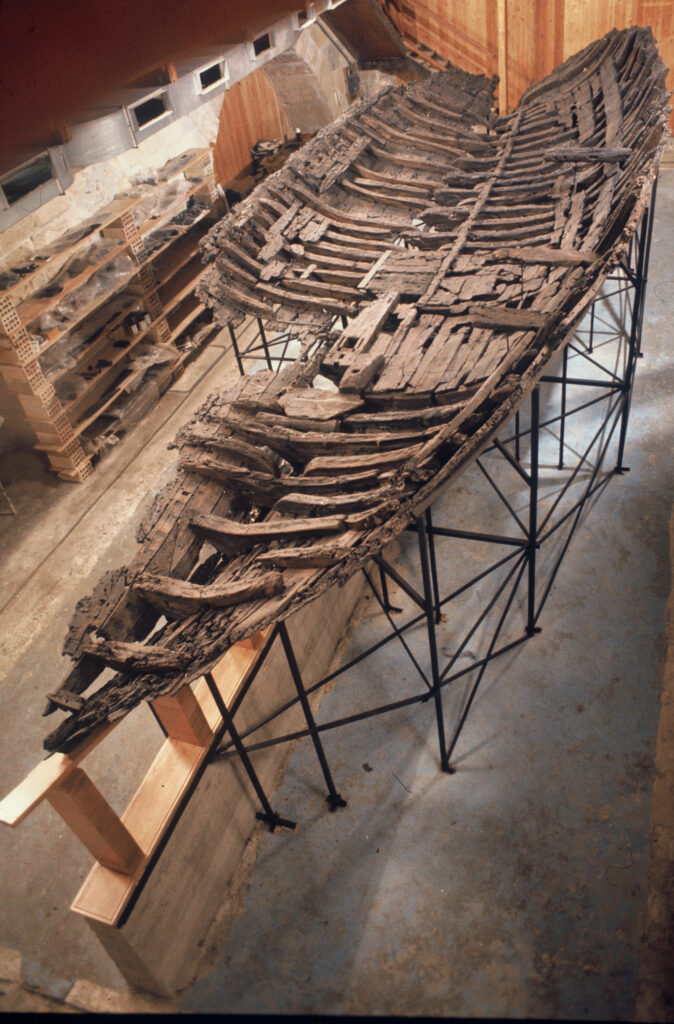
ITHACA, NEW YORK—According to a statement released by Public Library of Science, researchers have applied updated radiocarbon calibration techniques to revise the dating of the wreck of the Kyrenia, an ancient ship that was discovered and excavated off the coast of Cyprus in the late 1960s. Based on coins and ceramics recovered from the wreck, researchers had dated the ship to the late fourth or early third century b.c., which did not align with the radiocarbon dates from decades ago. Tree-ring dating is crucial in obtaining accurate radiocarbon dates because it helps correct errors caused by variations over time in atmospheric carbon. Even as radiocarbon dating methods have improved, calibration curves for some periods in the Northern Hemisphere have not been revised. Using new tree-ring samples, a team led by archaeologist Sturt Manning of Cornell University updated the calibration data for the period between 433 and 250 b.c. Then the researchers applied this calibration to new radiocarbon dates taken from remains of the Kyrenia ship and its latest dated cargo. These new dates suggest that the ship took its final voyage around 280 b.c., at least a decade later than previous dating had indicated. Read the original scholarly article about this research in PLOS ONE. For more, go to "History's 10 Greatest Wrecks...Kyrenia."


